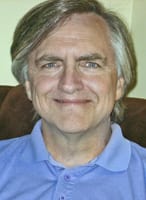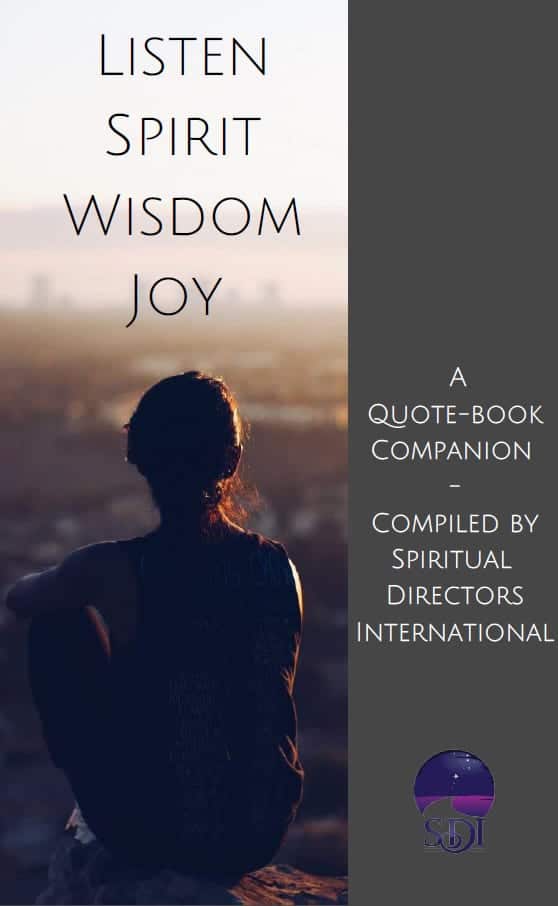Editor’s Note – This is election time in the United States. Uncertainty and anxiety run through the hearts of many Americans. These feelings are also commonplace around the world, where suffering abounds and fear reigns in the place of hope. The post below was written by London-based spiritual director Bruce Tallman in 2017. But it is pertinent right now when many of us worry that our countries and communities will not be able to heal themselves and find unity.
That’s where spiritual companionship can play a vital role. Spiritual companions support both healing and unity by modeling relationships of respect. They start by honoring the agency of each individual. They hold space for each person’s path to contemplative self-discovery. They offer deep, non-judgmental listening. In essence, they replace fear of the stranger with faith in the stranger. As the US election results unfold, and as we face many other challenging developments around the world, may we all find our way to the wisdom of honoring our neighbors and offering kindness to everyone, everywhere.
~ ~ ~ ~
God does not have to “intervene” in human affairs, as if God was swooping in from the outside, because God is everywhere and always has been. If anything, we humans are the interlopers, not God. As psychologist Carl Jung engraved in stone above his home’s entrance, “Summoned or not, God will be there.”
When Moses asked God what God’s name was, God said “I Am.” In other words, God is pure being, or “Being-Itself.” But God is also “Becoming-Itself.” God’s love is moving the whole evolutionary process forward toward God’s reign of wisdom, joy, justice, peace, and love.
This is evidenced by the fact that evolution has consistently moved in a spiritual direction: from rocks and water to plants and animals to humans and further to the spread of major religions around the world. So the direction is: matter to life to thought to spirit.
As a thought-experiment, let’s consider that possibly Jesus wanted to take things a further step, to a religion beyond religion — a meta-religion for everyone (“meta” means “beyond”).
His first major teaching, the Sermon on the Mount, starts with the Beatitudes, in which he outlines true happiness. In short: “Happy are the humble, the just, the pure in heart, and the peaceful.” He undoubtedly meant this for all human beings, not just his Jewish listeners.
We can resist his vision and the whole evolutionary process of course, and religious people have sometimes been the biggest resisters. The root of religion is “ligio” which means “to join” (same root as ligament), but religion can be used to hate and divide. Non-religious people can hate and divide people too, so the real problem is the human heart, rather than religion or atheism.
“Are you becoming a wise and compassionate human being?”
I am not sure if it matters to God if you call yourself Christian, Jewish, Hindu, agnostic, or atheist if you are unkind. God’s key question is probably “Are you becoming a wise and compassionate human being?”
Along these lines, Aldous Huxley wrote The Perennial Philosophy in 1945 at the end of the Second World War, in which he noted that world peace should be possible because the same themes occur perennially in all religions: charity, peace, and kindness. All that is required is for believers to practise these values.
Brother Wayne Teasdale, a Catholic monk, more recently said the same thing in Mystic Heart: Discovering a Universal Spirituality in the World’s Religions (1999). All the major religions in fact have more in common than our differences.
Christians regularly say that God is love, but maybe we could go beyond this and affirm that God is also wisdom, joy, peace, patience, and kindness. These are values everyone can agree on, whether they are religious or not.
Thus there may be a universal spirituality, not just for religious people, but for all human beings. If anyone, atheist or believer, experiences wisdom, joy, love, and peace, they are experiencing God working within them, urging them on to become fuller, more evolved human beings.
This is happening all the time because God is in all our lives, not only in those who are religious but also in the “spiritual but not religious,” and even in those who claim they are not spiritual. All of us want more happiness in our lives, so everyone is in fact spiritual and experiences God, whether they admit it or not.
This meta-religion of universal spirituality, this religion beyond religion, may be similar to what Jesus, Huxley, and Teasdale proposed. Hopefully, it is something we could all agree and work together on. The goal of all education, religious or otherwise, should be to produce more wise and compassionate human beings.

Bruce Tallman is a London spiritual director, marriage coach, and religious educator of adults. Check out his website: brucetallman.com This piece was first published by the London Free Press.




